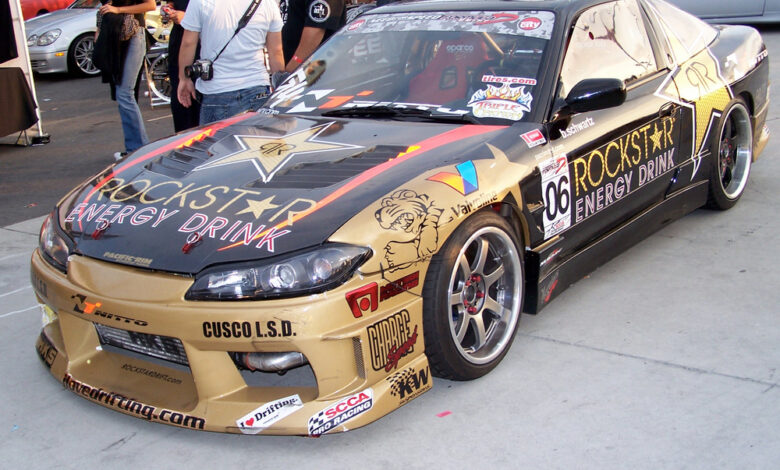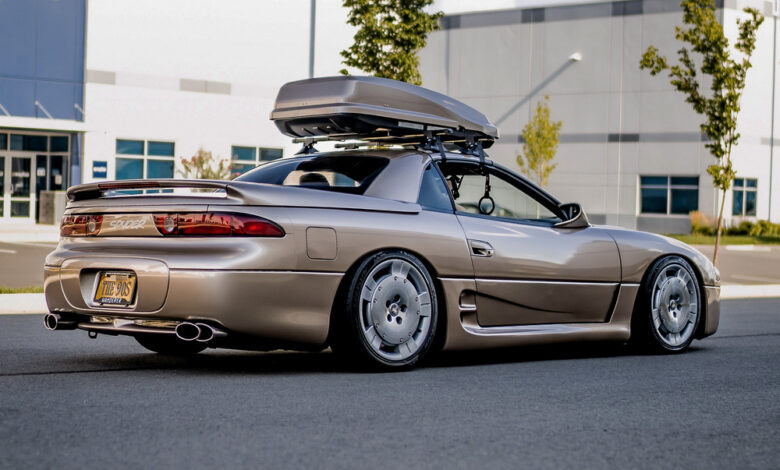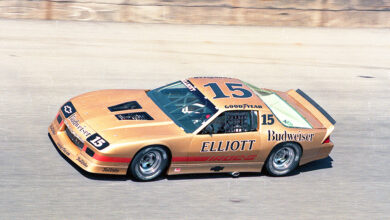This article originally appeared in the August 2023 issue of THE SHOP magazine.
Are millennials and Gen Zers less interested in vehicle ownership and driving? Not according to a study conducted by Hagerty Insurance titled “Why Driving Matters,” which found that 81% of millennial drivers said they “like,” “love” or are “passionate about” driving, just like 78% of Gen Xers and 79% of baby boomers.
Collectively, 57% of all drivers, including 64% of millennials, want to preserve the driving experience.
This is leading to a new phenomenon sweeping the automotive world. According to Urbandictionary.com, a “youngtimer” is a well-kept vehicle between 20-30 years old, usually identified as a future classic or limited production import associated with European builders.
Regulators in Germany classify vehicles in their original condition first registered at least 30 years ago and in good repair as “oldtimers,” while “youngtimers” are vehicles around 20 years old that have not yet achieved this status.
Youngtimers typically attract those who grew up with these cars when they were new in the 1980s and ’90s. The generational groups defined by youngtimers are millennials born between 1981-96 (27-42 years old), and Generation Z, born between 1997-2012 (11-26 years old).
The Pew Research Center identifies millennials and Gen Zers as economic and cultural driving forces behind fashion, technology and politics, synonymous with youth culture. While some view youngtimers as an investment, most are excited to take them out and drive them.
TODAY’S HOT RODS
Should youngtimers reach classic car status, their asking prices will increase. The idea is that, right now, youngtimers are affordable, cool cars in demand among younger enthusiasts—just like the hot rods and muscle cars of past generations.
Cars of the ’90s and early 2000s are currently available at bargain prices, and if they have been well maintained could be used as daily drivers or to start a collection.
At a time when vehicles are threatened by environmental legislation, internal combustion engine (ICE) opposition and emissions regulations, it’s refreshing to hear that younger generations are leading the charge in ensuring the survival of these classic cars.
They are joined by Atlanta-based S3 magazine, which has been a proponent of youngtimers since before the term was coined. Jonathan Wooley, the magazine’s founder and editor-in-chief, has followed the import lifestyle and culture since its inception.
In Vancouver, Washington, a serious collector of Japanese superbikes has contemplated buying up Japanese performance cars in the same manner. In his view, the Acura Integra Type R; Acura NSX; Datsun Roadster; Datsun 240, 260 and 280 Z-cars; Nissan 300ZX, 350 and 370Z; Nissan 240SX; Nissan GT-R; Honda Civic Type R; Honda S2000; Infiniti Q60 Red Sport 400; Lexus RC F; Lexus LFA; Mazda Miata MX-5; Mazda RX-7; Mitsubishi Eclipse; Mitsubishi Evolution; Mitsubishi 3000GT VR-4; Subaru Impreza; Subaru WRX STi; Toyota 2000 GT; Toyota Corolla GT-S; Toyota MR2 and Toyota Supra are the most desirable.
The idea is that these vehicles have attained status among enthusiasts but have not yet reached collector car status.
A prime example of a youngtimer is the BMW E30 M3, sold in the U.S. from 1988-91. Other European cars include the Audi TT RS and R8, Audi RS3, BMW 135i, BMW M2 Competition, BMW M3 GTS, Mercedes-Benz C63 AMG, Mercedes-AMG A45S, Mercedes-Benz 190E 2.3-16, Mini Cooper S JCW and JCW GP, Volkswagen Golf R and R32 Mk4 and Mk5, and Volkswagen Scirocco GTI.
While European insurers mandate that a youngtimer must be at least 15 years old, some vehicles are considered youngtimers at 10 years old. The definition states another car must be available in the household for commuting while the youngtimer serves as a hobby vehicle instead of a daily driver.
These guidelines help keep youngtimer insurance less expensive than regular auto insurance, although the insurer may impose yearly mileage limitations.
From an enthusiast’s point of view, a youngtimer is nostalgic. Performance or luxury cars that were unaffordable when they were new are now financially within reach of many drivers.
THE OPEN ROAD
Hagerty’s data refutes the belief that younger people are less interested in owning classic or collector vehicles than previous generations.
For example, 53% of Gen Z, 57% of millennial and 49% of Gen X respondents were “very interested” in owning a classic car. Conversely, baby boomers and Silent Generation respondents only registered 33% and 19%, respectively.
Hagerty initially commissioned the survey in response to the rise of autonomous vehicle technology. The survey polled 1,000 U.S. drivers 18 years and older—35% millennials, 26% Gen Xers, 31% baby boomers and 8% Silent Generation members. Combined, more than 85% “always want the option” of driving a car themselves and 79% aren’t willing to see driving disappear.
Also, there’s been a rapid rise in online auction platforms for classic cars, says David Zysblat, CEO of online auctioneer and marketplace Clasiq.com. These popular and growing websites were the antidote for the pandemic lockdowns when enthusiasts were stuck at home with disposable money and no place to spend it.
Instead of attending live auctions, they browsed the online classic car auction sites and placed a few bids. Unspent income and the rise of these auction websites caused a shift in the classic car market, opening it up to younger buyers.
Clasiq.com reports that millennials are buying the cars that they remember growing up with, rather than viewing them as commodities.
“Youngtimers or modern classics in demand are iconic 1990s Japanese cars such as the Toyota Supra, Mazda RX-7 and the Nissan Skyline,” Zysblat says. “Younger people are changing the classic car market. No longer is it only ultra-high-end, million-dollar auction sales—they are now affordable cars on widely accessible online auction platforms bought by enthusiasts and drivers.”











